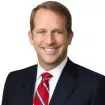- within Compliance, Government, Public Sector and Consumer Protection topic(s)
Key Takeaways
- Texas imposes new limits on non-compete agreements with licensed physicians and health care professionals that takes effect September 1, 2025.
- To be enforceable, non-competes with these individuals must now meet strict geographic and time limitations, have a buyout cap, and use clear contract language.
- The law reflects a trend toward narrowing or prohibiting non-competes in health care.
On June 20, 2025, Texas enacted S.B.1318, which limits the scope of non-compete agreements applicable to licensed physicians and now, other "health care professionals." The law builds upon existing limitations for non-competes under Texas law, by further narrowing time and geographic limitations for practitioners, and it caps the existing buyout provision at a practitioner's total annual salary and wages at the time of termination.
The law only applies to non-competes entered into or renewed on or after September 1, 2025.
Keys to Enforceability
The new law applies only to licensed physicians and "health care practitioners," including dentists, RNs and vocational nurses, and physician assistance. It excludes administrative roles or those managing or directing care in a non-clinical capacity.
To be enforceable, non-compete agreements with physicians and health care practitioners must include a –
- Limited Buyout Cap: Employers must now offer a buyout option that is capped at no more than a practitioner's total annual salary and wages at the time of termination.
- Five-Mile Geographic Restriction: The restricted area must be limited to a five-mile radius from physician's primary practice location. This sharply narrows the enforceable footprint, potentially preventing employers from imposing broad restrictions to encompass multiple sites.
- One-Year Maximum Duration: Non-competes must expire no later than one year after the end of employment.
All terms and conditions must be stated clearly and conspicuously in writing, reducing ambiguity and strengthening enforceability by ensuring both parties understand their obligations.
Additionally, non-compete agreements with a physician are automatically void if the physician is involuntarily terminated without "good cause." Once in effect, employers must clearly document and justify terminations or else risk losing protections offered by a non-compete agreement.
From Lone Star to Lockstep
S.B. 1318 joins at least 15 other states that have enacted limitations on non-competes governing health care professionals. States like Connecticut, Montana, New Mexico, and South Dakota have already enacted broad or profession-specific bans, particularly for physicians, nurses, and other licensed providers. While Texas stops far short of a full prohibition, its new law signals a shift toward tighter guardrails—balancing legitimate employer interests with those of departing practitioners and the public.
Locking-In Compliance: Employer Action Items
- Apply the Law Prospectively: The new requirements only apply to non-competes entered into or renewed on or after the effective date, September 1, 2025, but all future agreements must comply.
- Update Contract Language: Employers should review formatting, language, and placement of key provisions to ensure compliance and reduce litigation risk. Agreements must clearly and conspicuously state the terms and contain the buyout cap, expiration, five-mile geographic limitation, and continue to provide physicians with access to patient lists, records, and the ability to continue to see patients.
- Define and Document Primary Practice Location: Employers with multiple sites or regional operations should define what is a "primary practice location" and carefully document primary practice locations in a way that preserves enforceability.
The content of this article is intended to provide a general guide to the subject matter. Specialist advice should be sought about your specific circumstances.



